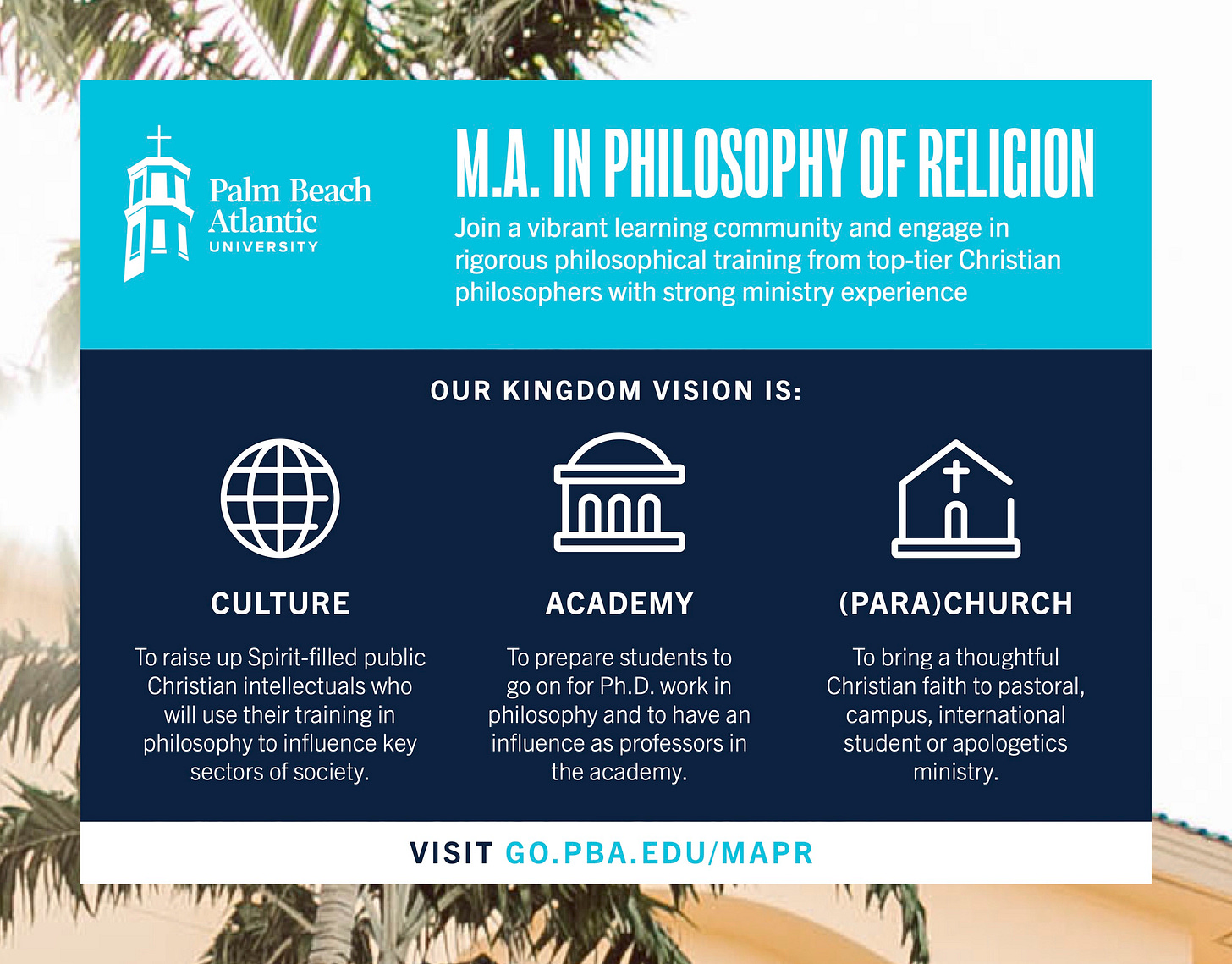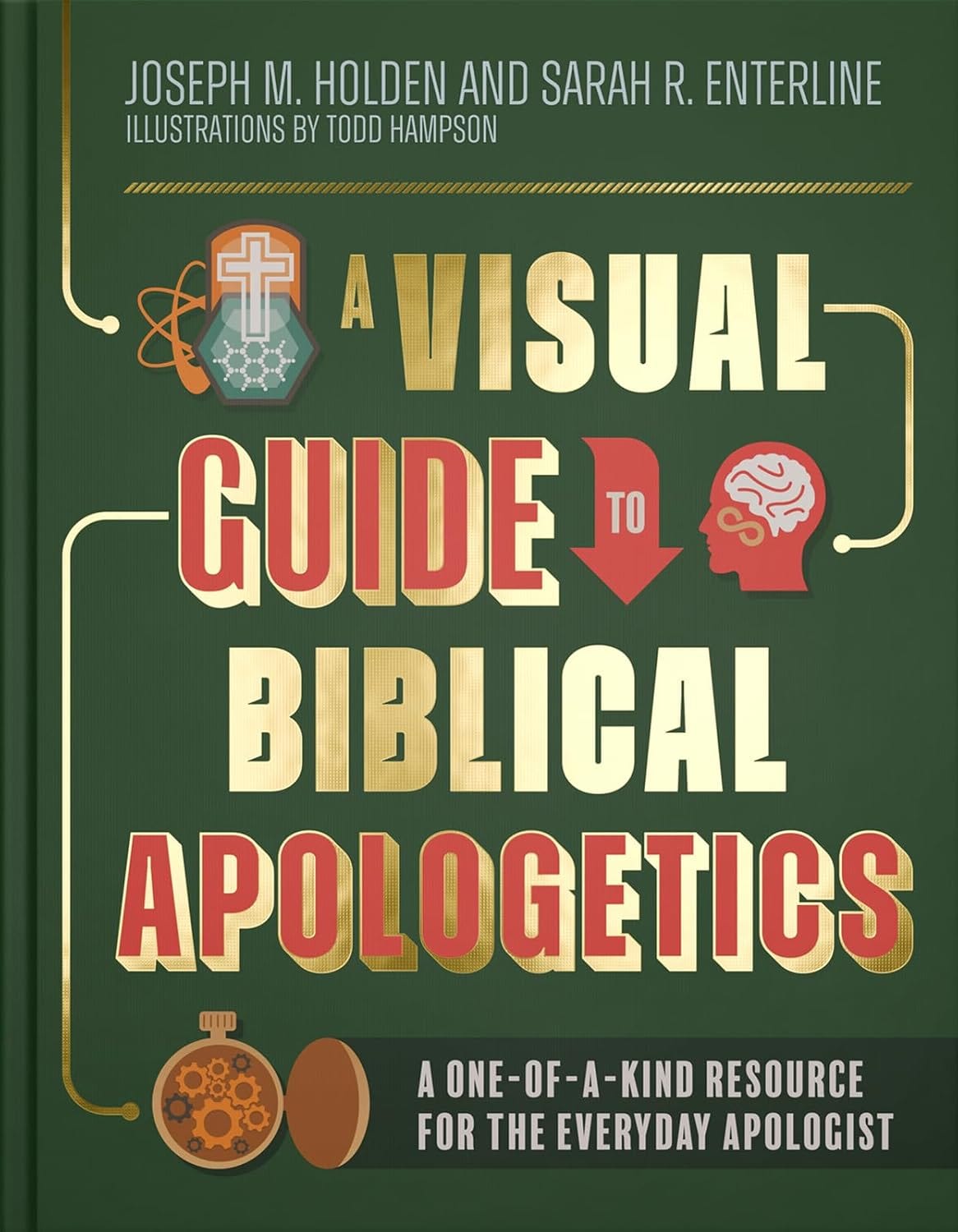In the modern West, “scientific proof” is thought to be the gold standard for separating truth from falsehood. The popular belief is that if you don’t have scientific proof of something, it doesn’t exist or is just a matter of subjective opinion. This is a viewpoint known as scientism, which holds that “science” is the only (or the best) means of discovering truth. But there are many truths about the world that lie outside the realm of science. For example:
• philosophical truths (such as the laws of logic)
• moral truths (murder is an evil act)
• historical truths (Columbus set sail in 1492 to discover a sea route to Asia)
• aesthetic truths (sunsets are beautiful).
So when it comes to providing reasons to believe that God exists, we need not limit ourselves to scientific evidence. We can appeal, for example, to the existence of objective morality (as C. S. Lewis did in Mere Christianity), to religious experience, or to Jesus’s resurrection from the dead. Nonetheless, there is powerful scientific evidence that points to God’s existence, and we’ll discuss two lines of this evidence below.
One final caveat before we proceed relates to the term proof. Merriam-Webster defines proof as evidence that “compels acceptance by the mind of a truth or a fact.” This is the everyday meaning of proof, in the sense of demonstrating something beyond any doubt. It’s important to note, however, that science is unable to provide this level of assurance. As the philosopher Karl Popper famously argued, scientific theories can’t ultimately be proven or confirmed, because other theories and observations may arise later that explain a phenomenon better. Thus, most leading scientists today recognize that scientific explanations are always provisional and may be modified or replaced in the future.
This is important to be aware of, because in the realm of science, we are always dealing with probabilities, rather than proof. Some piece of scientific evidence can point to God’s existence, and make it more probable, but scientific evidence can’t conclusively demonstrate that God exists. It’s simply beyond the purview of science to give us definitive proof about anything. So the evidence we’ll discuss below provides solid reasons to believe that God exists, but it can’t prove beyond any doubt that God exists. Science is incapable of reaching that high bar.
The Existence of the Universe
The most widely accepted account of how the universe came into existence is the standard Big Bang model. Based on a number of different scientific observations, physicists have concluded that the universe sprang into existence out of nothing about 14 billion years ago. The most immediate question that comes to mind in light of this account is: Who or what caused the Big Bang?
Significantly, the standard model holds that all space, matter, energy, and time suddenly came into existence, from nothing, with the Big Bang. This means that whatever brought the Big Bang about is beyond space and time, immaterial, personal (this being made a decision to create), and unbelievably powerful. Of course, this is an excellent description of many of the attributes of God. Who else but God could have brought a universe into being?
Some scientists have proposed alternative scenarios seemingly designed to avoid an absolute beginning of the universe, but none have proven persuasive enough to replace the standard model. While scientific theories, as we’ve noted, are always subject to change, the Big Bang as currently understood certainly points to the existence of God.
The Fine-Tuning of the Universe
Although the fact that the universe exists at all is remarkable, another fascinating aspect of the universe is that it is fine tuned for the existence of life. Some examples include the following:
•The Strength of Gravity: The strength of gravity is determined by the gravitational constant. If gravity were significantly stronger, stars would burn out much faster, leaving less time for life to develop. On the other hand, if gravity were much weaker, stars might not form at all, preventing the creation of essential elements for life.
• The Cosmological Constant: This constant relates to the expansion speed of the universe. If it were just a little bit larger, the universe would have expanded too rapidly for galaxies and stars to form. Conversely, if it were smaller, the universe might have collapsed back on itself before life had a chance to emerge.
• The Strong Nuclear Force: This force holds together the protons and neutrons in an atom’s nucleus. If it were slightly weaker, protons and neutrons wouldn’t stick together, making complex atoms impossible. Without complex atoms, the chemical diversity necessary for life wouldn’t exist. If it were stronger, protons could potentially bind to each other more readily, which could lead to a universe without stable hydrogen, an essential element for life.
• The Size and Distance of the Earth from the Sun: Earth’s position in the solar system is in what scientists call the Goldilocks Zone, where it’s not too hot and not too cold, allowing for liquid water to exist on its surface. The size of Earth also ensures that it has the right gravity to retain an atmosphere suitable for life without being too strong to inhibit the mobility of organisms.
Those unfamiliar with the evidence for fine-tuning will sometimes claim that it’s a concept held only by Christians or theists. Yet scientists who claim no religious affiliation or are openly agnostic or atheist acknowledge this fact about the universe. Fred Hoyle, an eminent physicist and agnostic, stated, “A commonsense interpretation of the facts suggests that a super intellect has monkeyed with physics, as well as chemistry and biology, and that there are no blind forces worth speaking about in nature.” In his book A Brief History of Time, the late Stephen Hawking wrote, “The remarkable fact is that the values of these numbers seem to have been very finely adjusted to make possible the development of life.” Physicist P. C. W. Davies, also religiously unaffiliated, insists that “the entire universe is balanced on a knife-edge, and would be total chaos if any of the natural ‘constants’ were off even slightly.”
The existence and fine-tuning of numerous constants and parameters of the universe is unexpected and mysterious if naturalism is true. But it makes perfect sense if Christianity is true, and God desired to create beings He could have a relationship with. Although acknowledging the provisional nature of science, there are good scientific reasons to believe that God exists, and these reasons seem to grow stronger the more we learn about the universe.
— Christopher L. Reese (MDiv, ThM) is the founder and editor of The Worldview Bulletin and a general editor of the Dictionary of Christianity and Science (Zondervan) and Three Views on Christianity and Science (Zondervan). He is the author of 100 Old Testament Quotes by Jesus: How Christ Used the Hebrew Scriptures (Rose/Tyndale), and his articles have appeared in Christianity Today, The Christian Post, Bible Gateway, Beliefnet, Summit Ministries, the C. S. Lewis Institute, and other sites.
*This article first appeared at the C. S. Lewis Institute as part of their Challenging Questions series.
Image by Manolo Franco from Pixabay
[in partnership with]
To learn more, visit go.pba.edu/mapr, or email Dr. Paul Gould, Director of the MA in Philosophy of Religion program, at Paul_Gould@pba.edu.
Did the Resurrection Really Happen?
The entire Christian faith depends on the belief that Jesus of Nazareth rose from the dead. If there was no empty tomb, Christians have an empty faith. But how can we be confident the resurrection really happened?
In this concise booklet, author Timothy Paul Jones addresses the doubts and questions that arise from Jesus’s resurrection as recorded in the New Testament. Jones argues this story is not a mere repetition of old pagan tales or a fabrication to fulfill Jewish expectations. Instead, it was a historical event that is supported by compelling evidence, including accounts of men and women who were willing to die for what they believed they had seen.
Skeptics are correct to assume that such claims should not be taken lightly. But what happens if Jesus really did rise from the dead? What would it mean for me and you?
“Well written, fast-paced, and filled with popular stories and illustrations, this book takes up the challenging question of whether Jesus’s resurrection is a historical event. Follow Timothy Paul Jones as he treks through nagging doubts and uncertainty, one reasonable step at a time. If you are learning why the resurrection is true, this is the sort of book you want to read. Intellectual gems that hit the right points are placed on a shelf that most readers, from young adults on up, can grasp without straining. Before you know it, you have worked through a case for Jesus’s resurrection and have reasons for your faith! Highly recommended!”
— Gary R. Habermas, Distinguished Research Professor and Chair, Department of Philosophy, Liberty University
See our recent excerpt from Did the Resurrection Really Happen? here.
Find Did the Resurrection Really Happen? at Crossway, Amazon, Barnes & Noble, and Christianbook.com.
If you’re craving more than the shallow stories social media tells—more depth, meaning, and truth—you’re not alone. At Summit Ministries young adults ages 16-to-22 discover their purpose, gain courage, and deepen their faith alongside like-minded peers. Summit is a life-changing two-week adventure in which top Christian thought leaders walk alongside young adults to teach them, answer their questions, and inspire confidence to stand up and stand out as believers.
Applications for this year’s Student Leader Scholarship are open! Register for an in-person session in Colorado or Georgia and apply to attend the $2,295 conference for only $195. Learn more about Summit’s iconic student conferences and start your application today.
“Summit summer sessions are high-impact, high-energy, immersive experiences that encourage students to think biblically, pursue Christ deeply, and share the love of God passionately. This ministry changes lives. I've taught at Summit for years and watched students come alive as they hear from leading Christian intellectuals with a heart for ministry. This is one of the best gifts you can give to your children as they prepare to be faithful witnesses in our disenchanted age.”
— Paul M. Gould, Associate Professor of Philosophy of Religion and Director of the M.A. Philosophy of Religion program at Palm Beach Atlantic University and regular Summit speaker and teacher for summer and gap-year programs.
A Visual Guide to Biblical Apologetics: A One-of-a-Kind Resource for the Everyday Apologist
As a visual guide, this one-of-a-kind resource features engaging infographics, charts, and tables that make difficult concepts easy to understand. You’ll find accessible explanations about major apologetics topics, including
the existence of God
the problem of evil
faith versus reason
Christianity and the major world religions
the trustworthiness of the Bible
evolution and science
Jesus and salvation
moral relativism versus absolute truth
and more!
A Visual Guide to Biblical Apologetics will equip you to address apologetics issues with clarity and conviction.
“I love this book! What sets it apart is its exceptional blend of user-friendliness and information density. It’s like having a comprehensive apologetics library squeezed into one visually stunning volume. Highly recommended!”
— Ron Rhodes, president of Reasoning from the Scriptures Ministries, author of numerous books
“I have more than 75 different books on apologetics in my personal library, but I have never had one as accessible as A Visual Guide to Biblical Apologetics. Our world is becoming increasingly visual and the need to buttress truth concepts visually is imperative. Finally, we have a resource that will help us quickly grasp as well as communicate truth to skeptics and seekers. This book is a welcomed gem!”
— Skip Heitzig, pastor-teacher of Calvary Church, Albuquerque, NM; author of The Bible from 30,000 Feet
See our recent excerpt from A Visual Guide to Biblical Apologetics here.
Find A Visual Guide to Biblical Apologetics at Harvest House, Amazon, Barnes & Noble, and Christianbook.com.
Advertise in The Worldview Bulletin
Do you have an educational institution, ministry, book, course, conference, or product you’d like to promote to 7,933 Worldview Bulletin readers? Click here to learn how. We’re currently booking for May-June.









Great article. Your comments about proof vs. evidence are perfect. I am considering this subject for my next book, which like my current one, will focus largely on biology, where so much evidence abounds.
These are the scientific arguments that began my journey from atheism to theism decades ago. Thank you for the article. The "Dictionary Of Christianity and Science" has a special place on my desk.